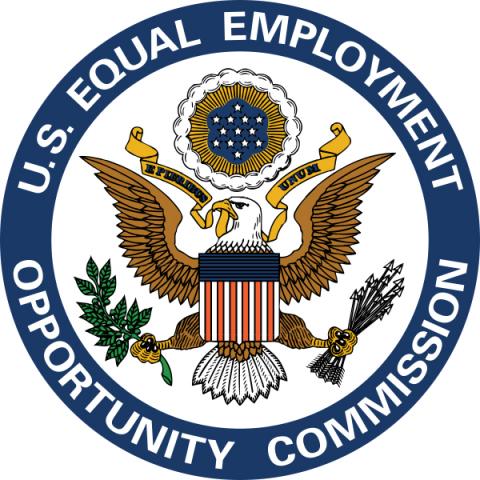 For many companies looking to fill job openings, a candidate who in his or her forties or older may not be a dream candidate, especially in information technology (IT) or high tech. There is a perception that older workers don’t have the skills or experience needed to work with rapidly advancing and changing technology and software. Are older workers being discriminated against in high-tech jobs?
For many companies looking to fill job openings, a candidate who in his or her forties or older may not be a dream candidate, especially in information technology (IT) or high tech. There is a perception that older workers don’t have the skills or experience needed to work with rapidly advancing and changing technology and software. Are older workers being discriminated against in high-tech jobs?
Older workers have a harder time being hired in general. Researchers at the University of California – Irvine and Tulane University responded to more than 40,000 job postings with fictional résumés as part of a study on age bias in hiring, according to Bloomberg.
- The fake applicants for particular jobs had similar experience but different ages and sexes. Job openings were in a dozen cities covering a wide range of jobs.
- Job candidates 29 to 31 years old received the most callbacks from potential employers.
- Compared to the 29- to 31-year-olds, those 49 to 51 received about 17% fewer callbacks, and those 64 to 66 were called back 34% fewer times.
- Older female candidates had the most difficulty getting called back.
High Tech May Be a Hard Sell for Older Job Applicants
 The high-tech industry has a particularly bad reputation when it comes to hiring older job applicants. Hiring managers may make a number of assumptions about older job candidates, according to Computerworld:
The high-tech industry has a particularly bad reputation when it comes to hiring older job applicants. Hiring managers may make a number of assumptions about older job candidates, according to Computerworld:
- How relevant, applicable, and up-to-date their skills are may not match younger applicants.
- Compensation they might demand will probably be higher than what a younger job candidate will seek.
- Their behaviors and attitudes may be rigid and narrow-minded.
- Their energy level won’t be as high as an applicant in his or her twenties.
Computerworld also reported that the U.S. Bureau of Labor Statistics (BLS) published statistics in early 2011 showing that older IT workers have much higher rates of unemployment than both younger IT workers and fellow older workers in other professions.
- In computer and mathematical occupations, the unemployment rate for those 55 and older increased from 6% to 8.4% from 2009 to 2010.
- Those 25 to 54 years old in that job category had their unemployment rate fall from 5.1% in 2009 to 4.5% in 2010, nearly half the unemployment rate of those 55 and older.
- In the overall economy, those aged 55 and older had lower unemployment rates (7%) than 25 to 54 year olds (8.5%) in 2010.
Computerworld stated that high tech is more open to older candidates whose skills are “ready made” for a position or for management positions, but older job seekers trying to get a job writing computer code have an especially difficult time.
Age Discrimination Claims Against Google
 Google employs more than 40,000 people. In a May 2014 blog, the company stated that 70% of its employees were male, 61% white, and 30% Asian. The blog states the company needs a more diverse workforce (“[W]e’re the first to admit that Google is miles from where we want to be—and that being totally clear about the extent of the problem is a really important part of the solution.”). But Google may not have been totally clear about the extent of the problem, because while the blog mentions sex and ethnicity, there is no mention of the ages of workers or the need for more older workers.
Google employs more than 40,000 people. In a May 2014 blog, the company stated that 70% of its employees were male, 61% white, and 30% Asian. The blog states the company needs a more diverse workforce (“[W]e’re the first to admit that Google is miles from where we want to be—and that being totally clear about the extent of the problem is a really important part of the solution.”). But Google may not have been totally clear about the extent of the problem, because while the blog mentions sex and ethnicity, there is no mention of the ages of workers or the need for more older workers.
One age discrimination lawsuit against Google asserted that the median age of Google employees is 29, according to data by Payscale, a benefits and compensation research company, based on 840 profiles of full-time, regular, U.S. based employees. The plaintiff claimed that the average age of computer programmers is 43. The U.S. Census Bureau estimates that the median age of Americans was 37.2 in 2010. Those between 45 and 64 years old make up 26.4% of the population. Those 18 to 44 are 24% of the population.
Examples of age discrimination cases filed against Google include the following:
- Robert Heath, who was 60 when he was contacted by a recruiter from Google’s engineering staff who wrote to him, “After reviewing your experience, I thought you would be a great candidate to come work at Google and add value.” He had a telephone interview with someone Heath claims was barely fluent in English and who insisted on using a malfunctioning speaker phone. Heath was not offered a job, reports Computerworld.
- Cheryl Fillekes has joined Heath’s lawsuit. She was contacted by Google four times over a seven-year period. Her phone interviews went better than Heath’s, and she was invited for in-person interviews each of the four times but never offered a job. Computerworld reports that Fillekes started programming in high school in 1976 and earned a bachelor of science in engineering from Cornell University in 1982 and a PhD in geophysics from the University of Chicago in 1990.
- Brian Reid was hired by Google in 2002 at the age of 52 in a management position, then demoted and fired by 2004. His case was initially dismissed, and the dismissal was reversed on appeal then settled, according to Computerworld. Some of Reid’s allegations include that one of his supervisors (15 years younger than him) and others told him his opinions and ideas were “obsolete” and “too old to matter.” He was also told that he was “slow,” “fuzzy,” and “lethargic”; that he “did not display a sense of urgency” and “lacked energy”; and that he was an “an old man” and an “old fuddy-duddy.” His February 2004 review stated he consistently met expectations, and he received bonuses (including 12,750 stock options), but he was fired later that year supposedly for poor performance and not being a good fit for Google’s corporate culture.
Summing It Up
Though getting a job in high tech is not necessarily a lost cause, for older job applicants it appears, depending on the circumstances, that making it through the hiring process may be a steep uphill climb. If you think you’ve been denied a job opportunity because of your age, you’ll have the burden of establishing the following facts to establish a viable age discrimination case:
- you’re a member of a protected class (40 or older);
- you applied for the job;
- you were qualified for the position;
- you were not hired;
- the job was filled by a less qualified, younger candidate; and
- you suffered damages as a result.
You would have the burden of proving it’s more likely than not that age played a role in the decision not to hire you. Contact our office with any questions about age discrimination law, about your situation, and about how the law may be applied in your case.





